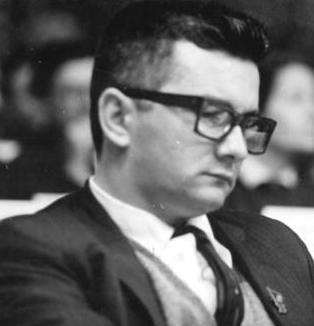
HAVANA — Armando Hart, a historic figure of the Cuban revolution who as education minister in the early 1960s oversaw a huge literacy campaign aimed at ensuring all Cubans could read and write, died Sunday at age 87.
Cuban state media said he died of respiratory failure in Havana.
Designated education minister shortly after the 1959 revolutionary triumph that put Fidel Castro in power, Hart was put in charge of sending more than 100,000 volunteers across the island for the literacy campaign. He later served as culture minister.
Known for his shock of white hair and dark rimmed glasses, Hart in his later years focused on promoting the life and works of Cuban independence hero Jose Marti.
Hart was re-elected as a member of the Communist Party of Cuba’s ruling Central Committee in April 2011, though he gave up a seat on the more powerful politburo. He had also sat on the island’s supreme governing authority, the Council of State, until he was removed in February 2008 amid reports that he was in ill health.
Hart served as education minister in 1959-1965 and as culture minister in 1976-1997. In between his two ministerial posts, he was organization secretary for the newly formed Communist Party.
Born in Havana on June 13, 1930, Hart studied law at the University of Havana, where he joined the youth wing of the Orthodox Party, a major political party of the time.
After Fulgencio Batista took power in a 1952 coup, Hart joined Cuba’s Federation of University Students in protests against the new government. That same year he graduated with his law degree and joined the opposition.
When Castro launched his revolutionary struggle with an unsuccessful attack on a military barracks in the eastern city of Santiago on July 26, 1953, Hart became an early member of the movement’s urban support group. Hart and other July 26 Movement organizers carried on after Castro and the other survivors were imprisoned, then later travelled to Mexico to form a rebel army.
Hart was arrested numerous times for his organizing activities in eastern Cuba after the rebels returned to Cuba in late 1956 to launch their guerrilla war from the island’s eastern mountains. His last arrest was in early 1958, and he remained behind bars until the revolution’s triumph nearly a year later on New Year’s Day 1959.
Castro soon named Hart as education minister and made him responsible for conducting the national literacy drive that became a model for other developing nations.
In his later years, Hart published several books on political and cultural thought, including “Perfiles” (“Profiles”), a 1995 collection of texts studying the lives and works of Cuba’s political and intellectual leaders.
Among Hart’s favourite leaders was Marti. In February 1997, he was named director of the Cuban government’s Office of Marti Program, created to publish and promote Marti’s extensive writings. Hart also headed the Jose Marti Cultural Society.
Hart was honoured with numerous national and international awards, including a UNESCO medal issued on the 200th anniversary of the birth of South American revolutionary Simon Bolivar.
He received honorary doctorates from Soka Gakkai University in Japan, the National University of Cordoba in Argentina and several Cuban universities, including his alma mater. He was also an honorary member of the Union of Jurists of Cuba and the Union of Writers and Artists of Cuba.
Hart was also distinguished with the Order of Felix Varela, First Grade, the highest award Cuba’s communist government grants to Cuban and foreign intellectuals. The Cuban Foreign Ministry awarded Hart its Raul Roa Garcia medal, named for the first foreign minister under the revolutionary government.
Hart’s first wife, Haydee Santamaria, a fellow revolutionary figure who participated in the 1953 barracks assault, died many years ago. His grown daughter, Celia, and son, Abel, were killed in a traffic accident in Havana in September 2008.